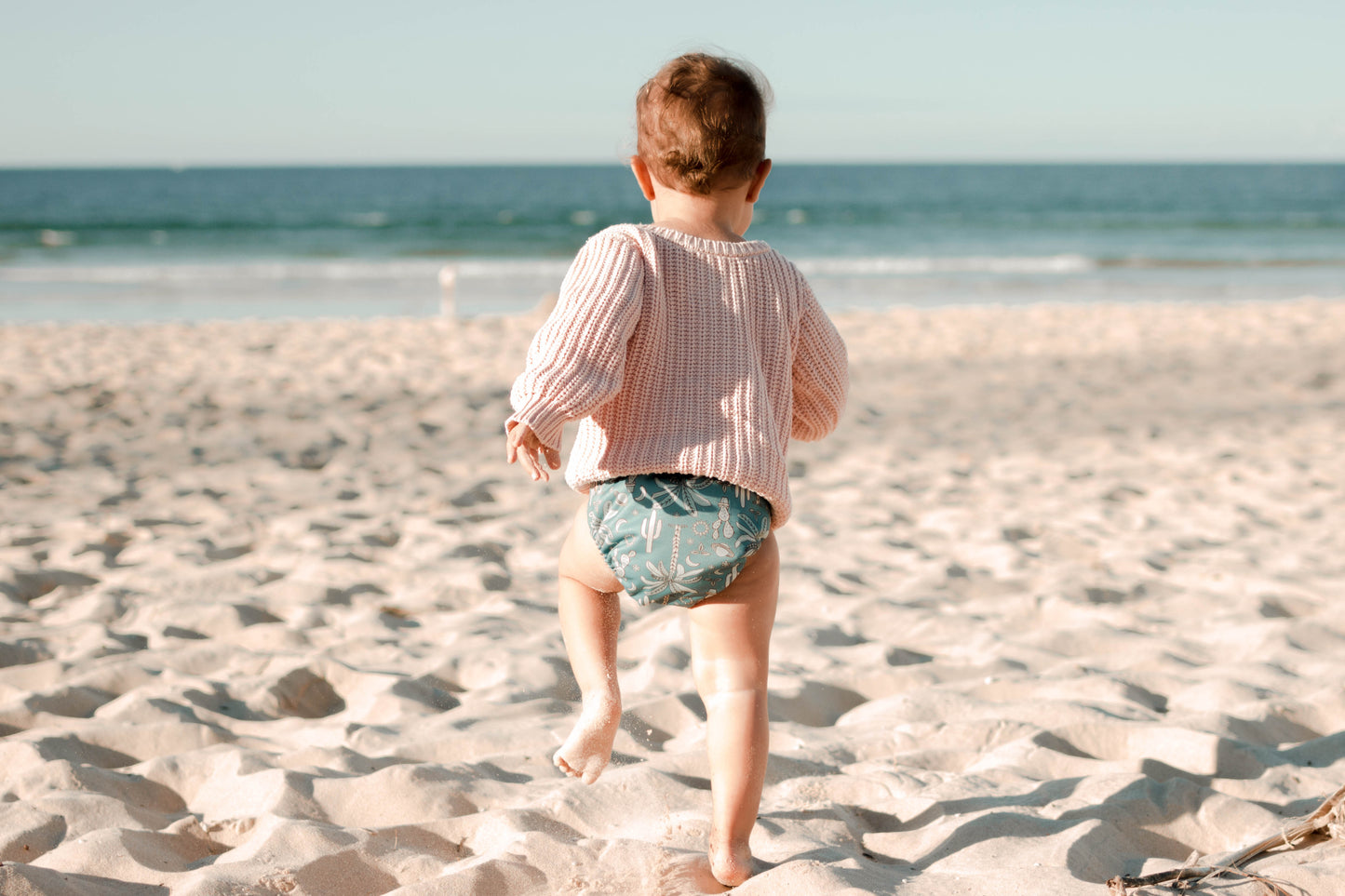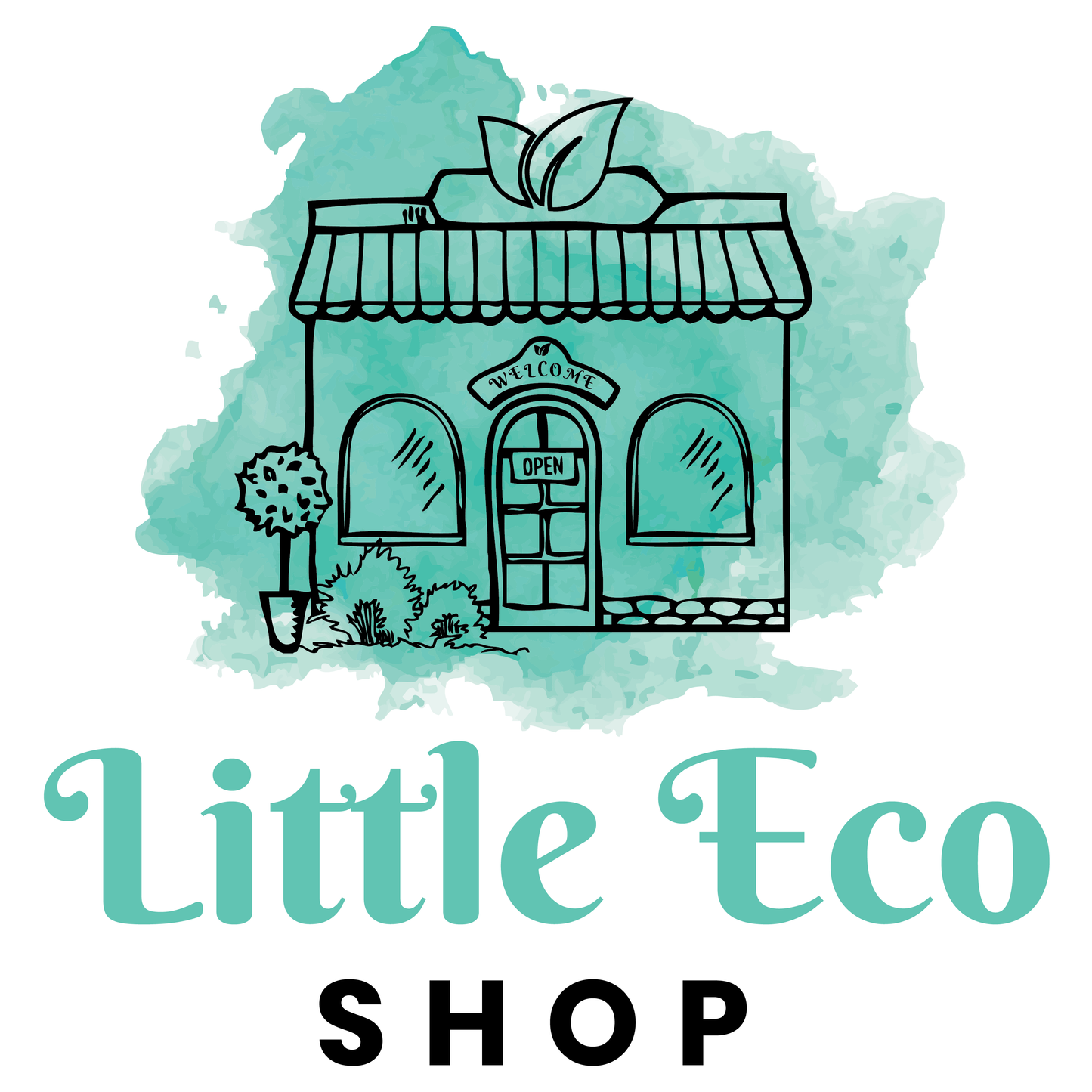
Nowhere is it more important to lighten your eco footprint than at the beach. From here, plastics need only travel the smallest distance to the sea. Toxic personal care products can harm marine environments and even our choice of swimwear can perpetuate needless plastic waste.
It takes miniscule effort to make mindful choices that won’t burden the beach. Read on to learn how you can be the ocean’s greatest ally, this summer.
Can you feel it? The sun is peeking out from behind cloudy skies to thaw us from our icy inertia and season-long Netflix-binge.
Yes, it is safe to emerge from your blankie burritos, people! Spring is here! It’s time to shed those layers and feel the blissful caress of sunshine on bare skin.
Australian springtimes usually go from ‘ahh! Why is it still freezing?’ to ‘oh my God, I’m melting!’ in the space of mere weeks, so now is the time to prep for tranquil beach walks and carefree hours spent perched on the sand.
Nowhere is it more important to lighten your eco footprint than at the beach. From here, plastics need only travel the smallest distance to the sea.
Toxic personal care products can harm marine environments and even our choice of swimwear can perpetuate needless plastic waste.
It takes miniscule effort to make mindful choices that won’t burden the beach. Read on to learn how you can be the ocean’s greatest ally, this summer.
Plastic free by the sea
This sounds so basic, but some people still don’t seem to grasp it: don’t bring plastic to the beach. Ever.
Aside from the obvious, like water bottles, cling-wrapped food and straws, keep Styrofoam takeaway containers and small plastic children’s toys well away. If you take a plastic beach ball, ensure that it comes home with you. In fact, ensure that everything you take comes home with you!
Birds and sea animals mistake our plastic litter for food, resulting in tragic, preventable deaths, and the contamination of our very own food chain.
Yes, the throwaway culture we’ve cultivated is back to bite us. Plastic isn’t so convenient, when its microparticles wind up inside of our food and, by implication, us.
Studies have verified that we humans are indeed swallowing plastic, which can enter the bloodstream and produce estrogenic effects or, in layperson’s, haywire hormones.
Our hormones dictate everything from fertility to cell mutation and cancer growth – it’s not wise to toy with the way they work. If injured sea animals weren’t enough to curb our careless ways, we’re also hurting ourselves.
We offer so many fantastic alternatives to single use. Bring your own drinks from home in Cheeki’s insulated drink bottles, keeping them icy cold all day, in even the harshest heat. BYO snacks for a beach picnic with this great selection of stainless-steel lunch and snack boxes.
These Wilfred Eco silicone straws are my absolute favourite. There’s a colour to please everyone in the fam and they are softer and more malleable than plastic straws, making for a smoother drinking experience.
Curate a wiser wardrobe
If you’re a bona fide beach bunny or holidaying by the sea, chances are you’ll want a few different swimsuits on rotation. We don’t advocate buying more of anything than you need, but when that old bikini is faded, stretched and worn, there are eco alternatives to consider.
Econyl is a recent innovation in textiles, comprised of recycled nylon waste, like discarded fishing nets. Not only does Econyl prevent the manufacture of new plastics, it helps clean up the ocean – what’s not to love?! Aussie brands, Spell and Ocean Zen use Econyl in their swim collections.
Beach workout on the cards? Bondi institution, Nimble Activewear, offer a CompressLite range, crafted from recycled plastic bottles. New eco labels are popping up all the time, making it easier than ever to give fast fashion the flick and keep plastic from our oceans.
Ignore seagull pleas for leftovers
Sometimes, we all want what’s bad for us and our birdy buddies are no different. Like me, you might have childhood memories of tossing hot chips to the gulls, or bread to the ducks, but people food and wildlife are a harmful combination.
Birds begin looking to humans for food, abandoning their natural diet and hunting methods and receiving inadequate nutrition. We might go down to the beach and have fish and chips once a fortnight and that’s not healthy for our larger bodies. Birds are small and they’re at the seaside, every day, snacking on takeaway – that’s disastrous for their health.
Feeding the birds breeds nuisance behaviour and an abundance of bird poop on our beautiful beaches. No one wants a warm surprise landing on their head, during a relaxing sun sesh. Don’t feed them, intentionally, and be sure to take your food scraps with you.
Be sun-safe and reef-safe
What you wear in the water is important to your health and the health of marine environments. New Hawaiian laws, to take effect in 2021, will ban the sale of sunscreen containing oxybenzone and octinoxate, which contribute to coral bleaching.
Up to 14,000 tonnes of sunscreen rinses into reefs, every year, decimating coral health. But it’s not just conventional sunscreen that’s dangerous – common ingredients in your makeup and moisturiser are also culpable.
Mineral oil, ubiquitous in cosmetic products, is petroleum-based and takes a long time to biodegrade. Titanium dioxide, another regular, does not biodegrade at all. It reacts with warm seawater to produce hydrogen peroxide, which is dangerous to all sea life.
If you plan on going swimming, ditch the moisturiser for a natural oil, like coconut or rosehip and skip the makeup – even organic mineral makeup usually contains titanium dioxide.
It’s important to choose a sunscreen that offers intensive sun protection, while avoiding chemicals that are harmful to you and the reef. SunButter Oceans sunscreen and zinc are new additions to Little Eco Shop. After trying these products for ourselves, we couldn’t not stock this brilliant brand.
It’s active ingredient, non-nanoparticle zinc, is widely effective against UVA, UVB and UVC rays, providing 50+ protection for up to four hours in water. It’s is certified vegan and plastic-free and contains a nourishing gang of skin-lovin’ (and ocean-lovin’) ingredients, like coconut and castor oils and vitamin E. Unlike some zinc cream, SunButter sunscreen blends well and doesn’t appear greasy. Get your hands on some, right here.
Take three for the sea, or four or five or six …
Bring takeaway food wrappers and drink cans to the beach? Put them in the bin.
Stumble upon trash? Pick it up.
Who cares if it’s not your litter? If we want to enjoy pristine beaches, we all have a role to play. It’s not fair to expect all of the glory and none of the responsibility.
As a mum of two young ones, I make it a habit to carry at least two reusable wet bags with me whenever we have a day at the beach. I use one for wet and sandy swimmers and the other for grubby tissues and the like so, if I’m at the park or beach, I have somewhere to store litter until I find a bin, or come home and sort it correctly. The beauty of reusable wet bags is that you'll never need to use a plastic bag ever again!
It’s really not hard and it feels bloody amazing to do your bit.
Inspired by our ocean-friendly advice, or have some eco tips of your own?
We love to hear from you, so be sure to drop your comments below. If you have questions about any of the products or info featured above, please don’t hesitate to get in touch.
Hazel x
